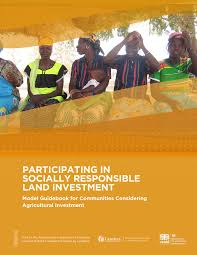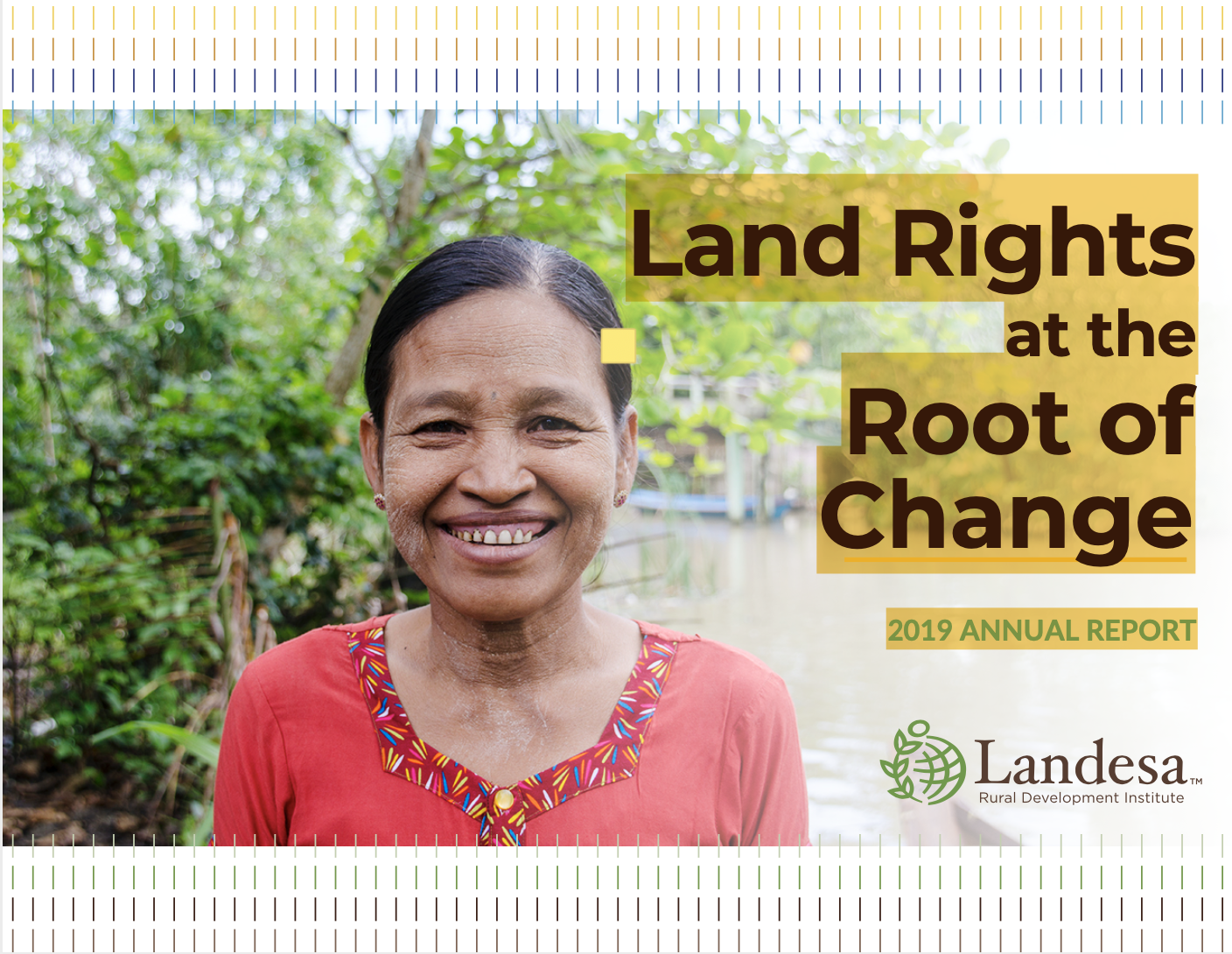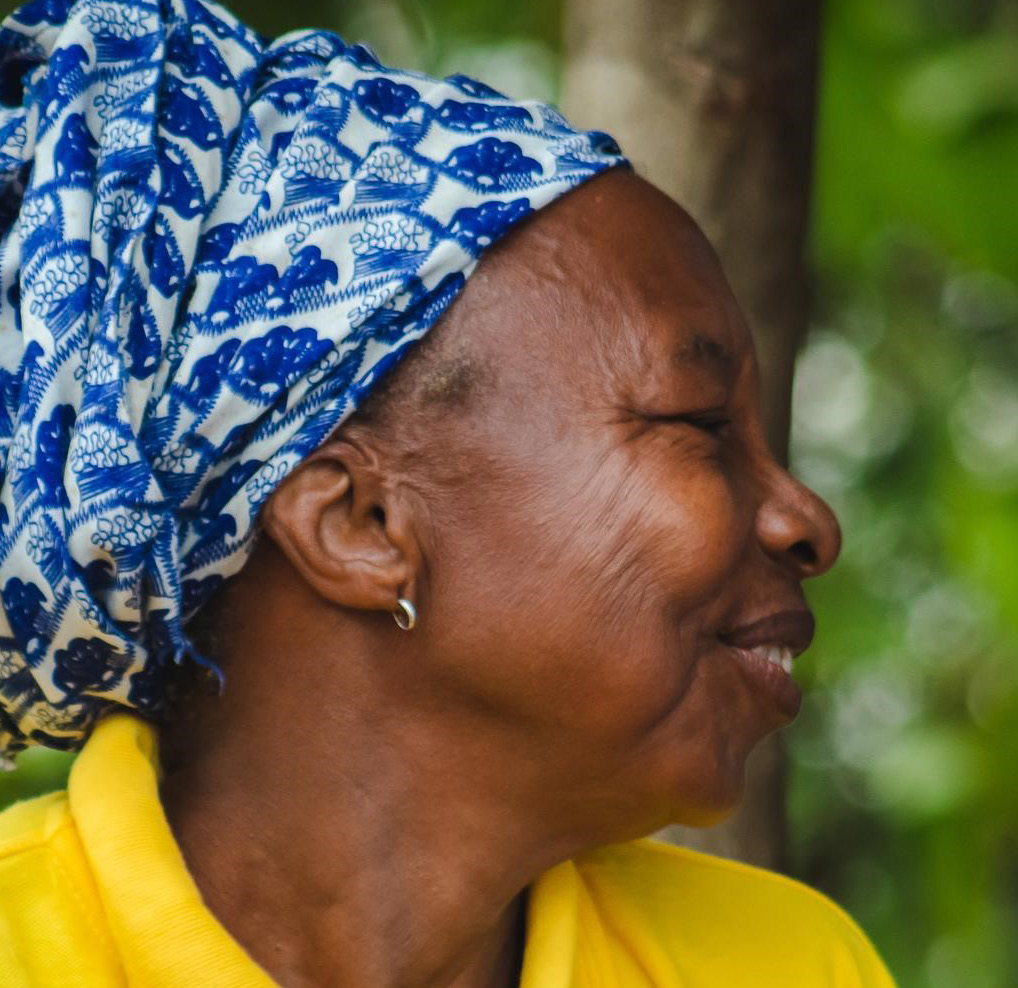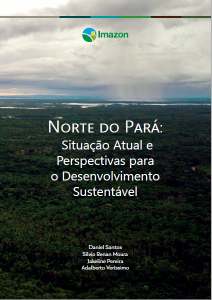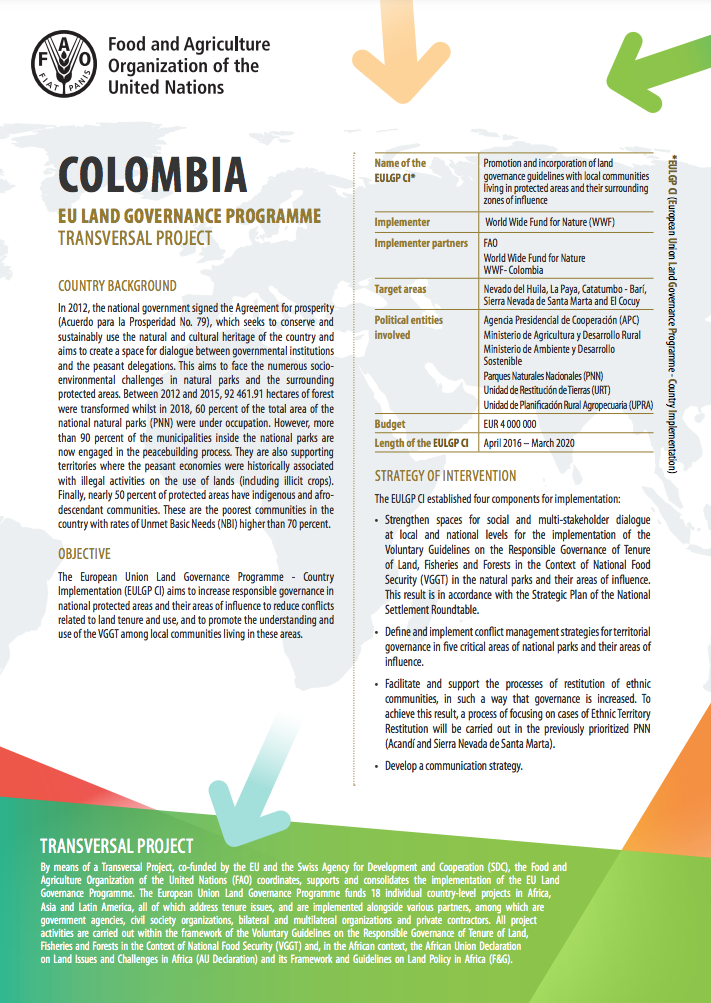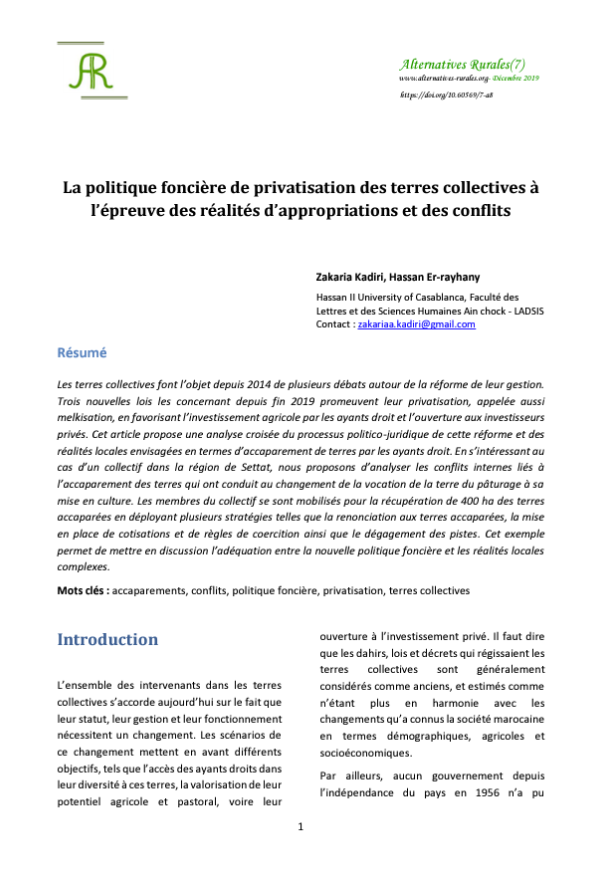Participating in Socially Responsible Land Investment - Model Guidebook for Communities Considering Agricultural Investment
This guide takes communities and their leaders, and 'ocal and national civil society organisations, through the steps needed to ensure that land investments in the community are carried out inclusively and responsibly.

